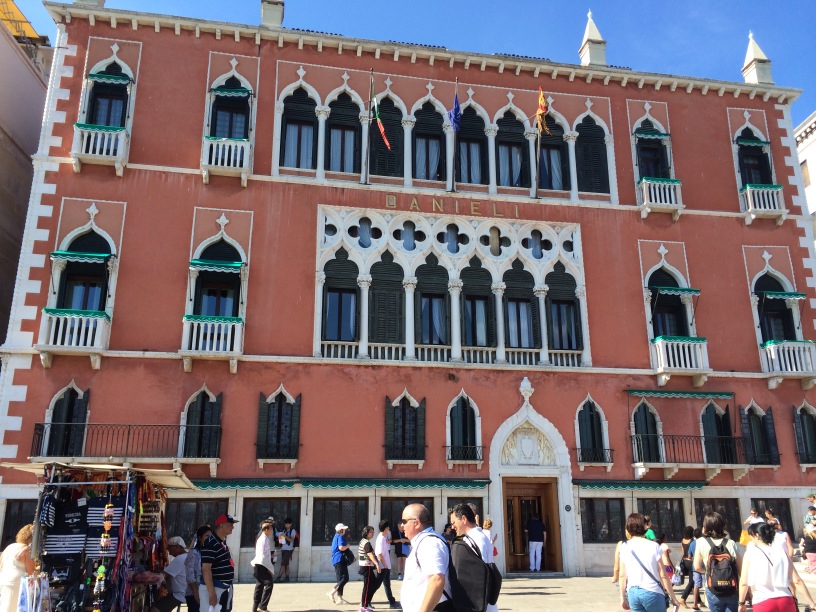Why It’s Time To Start Lowering Hotel Award Redemption Rates (Probably Not Why You Think)

As 2020 starts to wind down, there have been plenty of announcements from airline and hotel loyalty programs designed to keep members engaged. The first salvo revolved around reducing the requirements needed to earn elite status. This was at a time when it seemed like we might get back to some level or normalcy fairly quickly. Heck, at that point I thought I’d be home for 3 or 4 weeks and then back on the road. Little did I know then that I probably wouldn’t get on another plane this year.
As the COVID-19 pandemic stretched on into the summer months, the major travel brands started pulling different, more urgent levers. Marriott tried selling gift cards at rarely seen discounted prices. That may have generated some level of sales, but I can’t imagine it did much since Marriott hasn’t offered it again since, and seems to need cash as they lose hundreds of hotels to competing chains for non-payment of contracted amounts to hotel owners. Brands like Hyatt went the route of offering lots of points if you did have a paid stay. Those were easy promos to offer, since the cost was negligible if travelers didn’t take them up on it. And, United started a wave of eliminating change fees to spur confidence in travelers. All of these efforts likely had some effect on spurring new bookings, but probably not a significant effect.
Hotels Should Lower Redemption Rates
It’s easy to read the headline of this article and assume I’m going to say redemption rates (the number of points required to book a free night) should go down. Hyatt just announced their category changes for next year and they’re pretty much standing pat. That’s despite significant reductions in average daily rate at hotels across the world. Rates for hotel redemptions generally go up when the economy improves. So, why not go down when the economy tanks? Totally logical point of view and one I’ve seen discussed elsewhere.
But, my main focus today is on hotel chains keeping the attention of their loyal customers. A recent Air Canada promotion comes to mind, where they offered a 50% rebate on all award flight in Canada and to the US. If you were ready to travel and lived in Canada, this promotion was great for you. If you weren’t ready for travel, you were probably hoping they would run it again when you did feel comfortable getting on an airplane. Air Canada announced that promotion in June. Hotels need to do something similar, and soon.

Hotel Chains Need To Generate Excitement
It’s no secret that major hotels and airlines earn a ton of money from their co-branded credit card relationships. During the pandemic, a number of credit cards have added bonus categories to keep customers spending. We discussed it recently here. And, all those extra bonus categories can be helpful. However, as we enter the home stretch of 2020, many of those credit cards still come with benefits that folks can’t use. As annual fees come due, folks are having to answer interesting questions about whether it’s still really worth holding a premium travel credit card when you’re not traveling, especially when there are excellent cards with no annual fee out there.
The Marriott Bonvoy Brilliant card is a great example. That card comes with a $450 annual fee. You can burn that down pretty quickly with a $300 statement credit that will erase the expense of a paid stay (up to $300). But, if you don’t have any trips planned, that’s pretty useless, as is the free night and Gold status.
Without a good sense of when things return to “normal”, it’s perfectly reasonable to wonder whether you can justify a big annual fee over the next 12 months. Benefits like “Pay Yourself Back” which essentially work like cash back on some Chase credit cards seemed to be popular enough earlier in the year that Chase widely expanded the program. Chase also issues some Marriott credit cards, but programs like Pay Yourself Back directly compete with some Marriott credit cards. So, where should customers be putting their spending? On a card that earns hotel points they’re not sure when they can redeem, or cash today?
This isn’t a new question. Many folks save up points, planning for that dream trip. However, the majority of us are still dreaming, and not planning travel. Couple that with job uncertainty and cash back can start to look pretty appealing.

Get Customers Excited Now, Or In The Future
If hotel chains were to lower redemption rates temporarily, that might encourage some travel, either widely or at the margins (likely the latter). That should generate some cash for hotels. There’s an open question as to whether large chains like Marriott are paying hotels for all those award stays, especially after the second large batch of hotels to leave Marriott. But, assuming cashflow permits it, large chains can generate more revenue from co-branded credit cards and pass some of that on to their franchisee partners. The alternative if the customer cancels the credit card is significantly more bleak.
Discounting award redemptions where a customer wasn’t ready to travel doesn’t cost anything to the hotel chain. The argument could also be made that it doesn’t specifically encourage someone on the sidelines to keep that credit card in their wallet. Still, it’s an affordable way to try to generate excitement. It’s clear from increased sign-up bonuses such as this one from Marriott that the chains are trying to drive increased applications for their credit cards, which in turn increases their revenue from selling miles to their partner banks. The same logic applies to existing cardholders.
The Final Two Pennies
I could argue the same philosophy for airlines, and I have seen some pretty solid discounting of award flights. However, many remain much higher priced than demand would seem to indicate. I do think that airlines are a bit less susceptible to losing credit card customers now. I don’t have the data to back it up, but I do suspect many cardholders carry the card because the airline has a hub in their city, where their destination is just as likely to have a Hilton and a Marriott hotel. I also think people start thinking about their trips based on where (and how) they’re going to fly, so many are more likely to be thinking about flights first.
There’s a real risk that hotels stand to lose some of their best customers. Hotel chains have spent decades cultivating loyal customers. They’ve added benefits along the way as they’ve increased credit card annual fees. They’ve also driven up the number of points required for a hotel room in many situations. They would be well-served spending some time to engage members now in as many ways as possible before that next annual fee pops up on a statement, or a really great cash back offer catches their eye.
Did you enjoy this post? Please share it! There’s plenty of ways to do that below.
You can also follow me on Twitter, Facebook and Instagram.
And, I hope you’ll check out my podcast, Miles To Go. We cover the latest travel news, tips and tricks every week so you can save money while you travel better. From Disney to Dubai, San Francisco to Sydney, American Airlines to WestJet, we’ve got you covered!

The decision to travel or not is unlikely to be an economic one right now. And that’s the only demand that slashing rates stimulates. Generating a ton of low yield future bookings that will potentially interfere with a real recovery doesn’t do any good, especially when they could still be sold at fire-sale prices then if the recovery hasn’t happened yet.
And to the ADR point, they can’t suddenly lower all properties a tier or two and empty out the upper echelon. That imbalance wouldn’t be good for the program, I’d bet.
Always appreciate your thoughts, Seth. I do think they can lower properties a tier or two, but I also understand that as a public company that would require a very strong-willed board.
But, periodic fire sales and promotions on the redemption side can be turned on and off. Without being able to show customers value on both the earning and redemption side, I suspect the hotel chains are risking a long-term change in customer behavior that will be more expensive later to fix.
Well said.
The idea of value is an important one. Buy if people simply aren’t traveling at any price what’s the value to demonstrate?
With the (Covid-caused) shift to working from home, the need for both air travel and hotels is obviously down. From my perspective, however, accumulating hotel points is still worth doing while accumulating restricted/devalued airline miles has become a fool’s errand. Specifically, Hyatt has spurred me to start a mattress/status run with their discounted cash and award stays promotion. With hotel points, one can always plan a staycation or trip to any desirable destination within driving range (~400 miles or less from home), no flight needed. Living in the D.C./northern Virginia area, that radius includes Boston, NYC, Niagara Falls, the Carolinas and many other spots.
I am a big fan of Hyatt’s latest promotions, although they’re not quiet enough to spur incremental travel for me. No doubt there are some wonderful Hyatts (and other chain properties) where you can redeem points at right now. However, the cash rates make it a better deal to pay for many stays right now. In the end, if it’s not a good value to redeem points, then some folks collecting them may find better values for their credit card spending.
Hotel rates are so cheap right now that “investing” is status or points for near term redemption is unlikely to yield decent returns. I paid under $100 for a Hyatt in Manhattan last week.
I’m doing a fair amount of travel and have just decided to pay with cash and not bother with redemptions. I’ve rekindled my love of Hyatt after locking in my lifetime Marriott Platinum